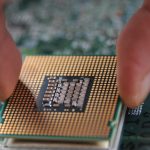Off-Earth drilling is a formidable task due to the unique environmental and technological hurdles that must be overcome. Unlike Earth, many celestial bodies lack the atmosphere necessary to support traditional drilling methods that rely on fluids for cooling and lubrication. Furthermore, the extreme temperature swings and abrasive conditions present in extraterrestrial environments pose additional difficulties for drilling operations. The use of hydraulics, a common technology on Earth, is severely limited in space due to these harsh conditions. These challenges necessitate innovative engineering solutions to enable successful drilling beyond our planet, which is essential for the advancement of space exploration and potential resource extraction in the future.
Historically, space exploration has faced a myriad of challenges, with drilling being a particular focus due to its potential for uncovering subsurface resources and enabling human habitation. Previous missions, such as those on Mars, have utilized drills to collect samples. However, these endeavors have highlighted the limitations of current technologies when adapted to the constraints of space environments. The importance of drilling on other celestial bodies has long been recognized, but achieving the efficiency and functionality seen in terrestrial drilling operations remains an ongoing pursuit. Past research and missions have laid the groundwork, informing the development of more sophisticated drilling technologies.
What are the Environmental Obstacles?
The absence of an atmosphere on many celestial bodies presents significant environmental obstacles for drilling. Traditional fluid-based cooling methods cannot be used, necessitating alternative strategies to manage heat and prevent equipment failure. Additionally, the fine, pervasive dust encountered during drilling can damage machinery and impede operations. Overcoming these environmental challenges requires a reimagining of drilling techniques suited to the vacuum of space and extreme temperature variations.
What Technological Innovations are Needed?
Technological innovations are at the heart of conquering the challenges of off-Earth drilling. The weight and power limitations inherent to space missions constrain the size and capabilities of drilling equipment. New designs must therefore focus on lightweight, energy-efficient systems that can endure the rigors of space travel and function with limited power resources. Solar energy and alternative power sources are being considered to replace traditional hydrocarbon-fueled engines. A scientific paper by Dariusz Knez and Mitra Kahlilidermani, published in the University of Krakow, delves into these issues and explores potential solutions, emphasizing the need for creative engineering approaches.
How Will Future Missions Benefit?
Future space missions stand to benefit immensely from advancements in off-Earth drilling technologies. Drilling is a critical component for accessing subsurface resources, which could support long-term human presence and scientific discovery. Improved drilling technology would also facilitate the study of geology and the search for life on other planets. As such, ongoing research and development efforts are pivotal for the success of future exploratory missions and the potential establishment of extraterrestrial habitats.
Useful Information for the Reader:
- Fluid-based cooling is ineffective in a vacuum, necessitating new cooling methods.
- Space missions require lightweight, energy-efficient drilling systems.
- Improvements in drilling tech will advance resource extraction and habitat construction.
In drawing together these threads, it becomes apparent that off-Earth drilling is a vital but intricate endeavor, one that pushes the boundaries of current engineering capabilities. The challenges are not insurmountable; they call for an interdisciplinary approach that includes mechanical engineering, materials science, and planetary science. The information provided here underscores the urgency and importance of developing robust, efficient drilling technologies for space exploration. Not only does this pave the way for scientific advancements and the potential colonization of other worlds, but it also inspires innovations that could trickle down to improve terrestrial technologies. As the pursuit of off-Earth drilling continues, it stands as a testament to human ingenuity and the unyielding quest to explore and understand the cosmos.










